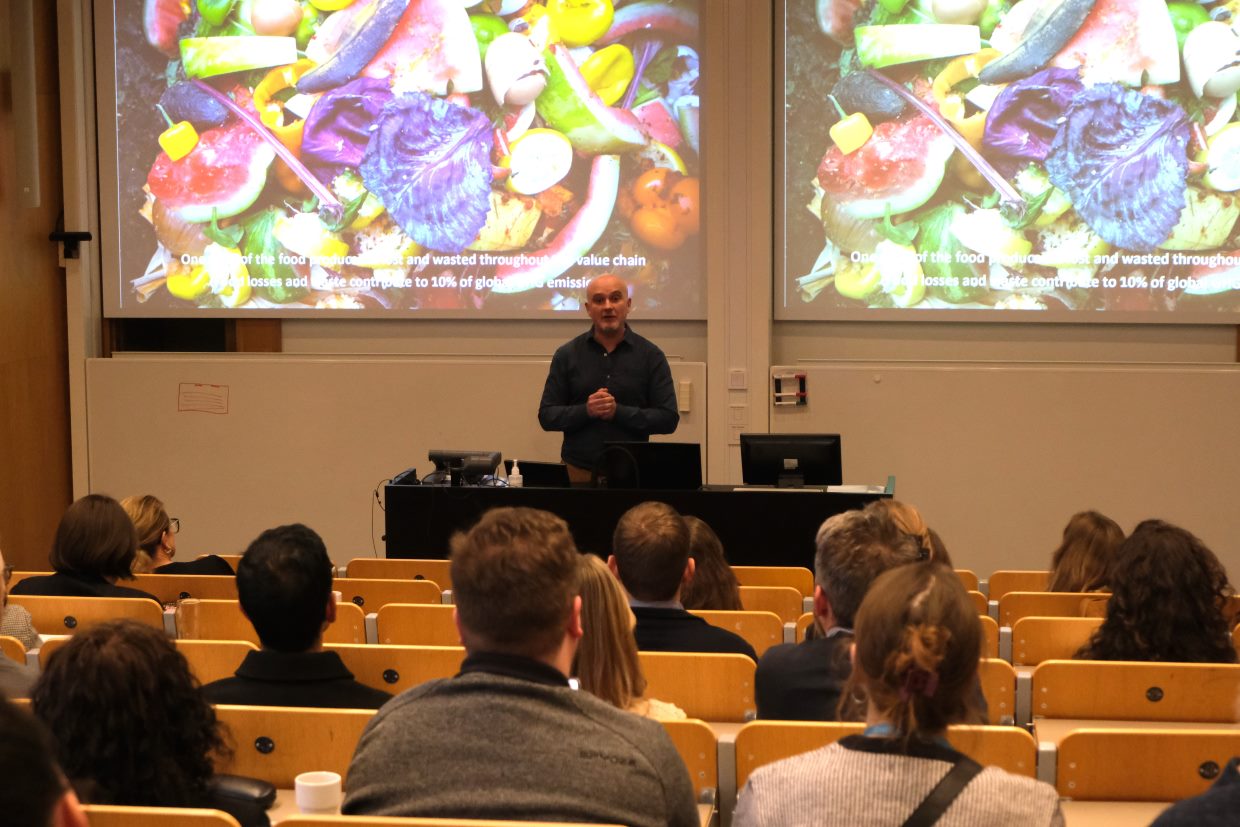Kicking off the future of food: PLENTY’s Mission for Sustainability

To celebrate the 85 million SEK funding of PLENTY – A Centre for Symbiotic and Circular Food Provisioning, KTH hosted a kickoff on February 11th. The day marked the beginning of a joint, ambitious effort to strengthen Sweden’s food system through research, innovation, and collaboration.
During the kick-off, PLENTY’s director Francisco Vilaplana emphasized the importance of transforming our current linear food system into a circular and sustainable system. Today, one third of the food produced globally is wasted, which accounts for approximately 10% of greenhouse gas emissions. The linear model contributes to greenhouse gas emissions and biodiversity loss, and the COVID-19 pandemic and the war in Ukraine have further highlighted the shortcomings of our food system. Circular thinking is needed to address both environmental impacts and the vulnerability of food supply. PLENTY strives for systemic change by optimizing resource use and eliminating food waste throughout the value chain.
The transition to a circular system faces challenges, including technical and systemic barriers, as well as societal and innovation-related issues, such as consumer skepticism and regulations. “PLENTY addresses these challenges through technology development and a systemic approach to integrating waste streams into food production. The work also includes societal aspects, such as health issues and consumer acceptance”, Francisco Vilaplana comments.
The strategies include the development of biorefinery processes, mapping resource flows and assessing new circular material flows. By taking into account social and ethical aspects, as well as the innovation landscape, PLENTY aims to train interdisciplinary researchers and create technical solutions to manage food losses and waste. In the long term, PLENTY is expected to lead to sustainability improvements, increased food security and the creation of new economic opportunities through waste upcycling.
A Collaborative Initiative for a Resilient Food Future
PLENTY is one of five research centers that was selected for funding under Formas' call for "Contingency planning and competitiveness in the food system." Coordinated by KTH, the center brings together over 20 partners from academia, industry, the public sector, and civil society to address vulnerabilities in food supply chains and drive sustainable transformation.
The kick-off welcomed researchers and participants from leading organizations, including academic partners, industry, public organizations and civil society. The keynotes and panel discussions offered expert insights from academia and industry, outlining the challenges and opportunities in building a more sustainable and self-sufficient food system.
Line Gordon, director of Stockholm Resilience Centre, was invited to set the scene on the challenges that the food system is currently facing in terms of preparedness and resilience, emphasizing the importance of systemic adaptability and diversity of approaches for food provisioning to fulfill our needs in the face of climate change and geopolitical disruptions.

From Waste to Value: Innovating Circular Food Systems for Sustainability and Resilience
A multidisciplinary panel featuring researchers from IVL and KTH, alongside representatives from Ragnsells, Orkla, and Arla, explored strategies to optimize food side streams, reduce waste, and promote circular solutions. The discussion highlighted the need for industry collaboration, innovative technologies, and policy support to transition towards a more sustainable food system.
Societal Acceptance and Innovation Ecosystems
Experts from IVL, SSE, Ljusgårda, Axfoundation, and ICA addressed key challenges in consumer trust, policy frameworks, and fostering a thriving innovation ecosystem for circular food systems. They emphasized the importance of transparent communication, regulatory alignment, and cross-sector cooperation to drive meaningful change and accelerate the adoption of circular food practices.
“The topic and broad cross-disciplinary cooperation in the center is timely and spot on”, Annelise de Jong, IVL and KTH, comments. “A system perspective is required to tackle the challenges related to the sustainability transition needed across the entire food sector. This includes creating new actor collaborations in production, bringing together potential valuable side streams and new applications, and supporting both the industry and consumers — public and private — in scaling up the use of new food products based on these resources.”
With growing global challenges such as extreme weather, pandemics, and geopolitical tensions, the need for a resilient food system has never been more urgent. The PLENTY kickoff marks the beginning of a collaborative journey to tackle the complexities of a food system transformation.
Written by: Andrea Kron
